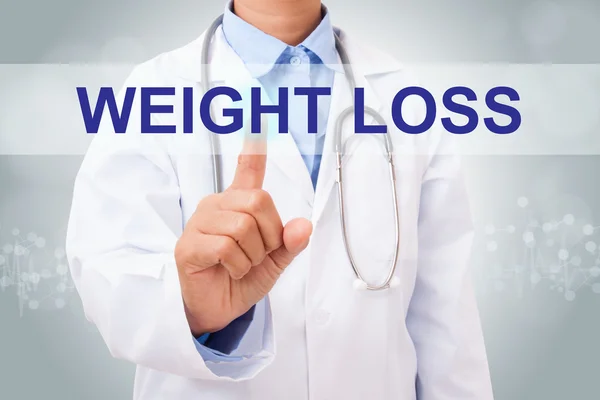In the perpetual quest for a healthier lifestyle, weight loss remains a focal point for many individuals. As the demand for effective and sustainable solutions continues to rise, dietary supplements have emerged as popular aids in achieving weight management goals. These supplements, often formulated with a blend of natural ingredients, aim to support individuals on their weight loss journey by enhancing metabolism, reducing appetite, and promoting overall well-being.
The key to successful weight loss through dietary supplements lies in understanding the synergy between the supplement and a balanced diet, coupled with regular exercise. While these supplements can provide valuable support, they are not magical solutions on their own. Instead, they act as complementary tools, helping individuals make strides towards. Their weight loss goals when combined with a holistic approach to health.
Dietary supplements come in various forms, including pills, powders, and liquid formulations, catering to diverse preferences. Common ingredients found in these supplements may include herbal extracts, vitamins, minerals, and other compounds known for their potential benefits in weight management.
It is crucial for individuals considering dietary supplements for weight loss to consult with healthcare professionals before incorporating them into their routine. This ensures that the chosen supplements align with individual health needs and goals. With the right guidance, dietary supplements can play a positive role in a comprehensive weight loss strategy. Offering support on the path to a healthier and more balanced life.
What Are Weight Loss Supplements?

Weight loss supplements are products designed to aid individuals in their efforts to lose weight by supporting various aspects of the weight management process. These supplements typically come in the form of pills, capsules, powders, or liquids and may contain a variety of ingredients known for their potential impact on metabolism, appetite, or fat burning.
Common ingredients found in weight loss supplements include:
- Herbal Extracts: Many supplements include extracts from plants such as green tea, Garcinia Cambogia, or forskolin, believed to have properties that support weight loss.
- Vitamins and Minerals: Some supplements contain essential nutrients like vitamins and minerals, which play a role in metabolism and overall health.
- Fiber: Fiber-rich ingredients like glucomannan may be included to promote a feeling of fullness and reduce calorie intake.
- Caffeine: Known for its stimulant effects, caffeine can boost metabolism and increase energy expenditure, potentially aiding in weight loss.
- Protein: Protein supplements may be included to support muscle maintenance and satiety, helping individuals feel fuller for longer.
The efficacy of weight loss supplements can vary, and their success often depends on factors like individual metabolism, lifestyle, and adherence to a healthy diet and exercise routine. Additionally, potential side effects and interactions with existing medications should considered. Before incorporating weight loss supplements into their regimen, individuals advised to consult with healthcare professionals to ensure. The safety and appropriateness of these products for their specific needs.
Regulation of Dietary Supplements Weight-Loss

The regulation of dietary supplements, including those specifically marketed for weight loss, is a complex and evolving landscape. In the United States, the regulation primarily governed by the Dietary Supplement Health and Education Act (DSHEA) of 1994. Unlike pharmaceutical drugs, dietary supplements do not undergo the same rigorous pre-market approval process by the U.S. Food and Drug Administration (FDA). Instead, manufacturers are responsible for ensuring the safety and labeling accuracy of their products.
Under DSHEA, the FDA has the authority to take action against dietary supplements. That deemed unsafe or misbranded, but this usually occurs after they enter the market. The burden of proof is on the FDA to show that a product is unsafe rather than on the manufacturer to demonstrate its safety before entering the market.
For weight-loss supplements, this regulatory framework means. That some products may reach consumers without comprehensive safety and efficacy testing. Adulteration and mislabeling issues have reported in the industry, highlighting the need for consumers to vigilant and informed when choosing these products.
Consumers are encouraged to consult healthcare professionals before using weight-loss supplements, and it crucial to purchase products from reputable manufacturers. The FDA continues to work towards strengthening its oversight of the dietary supplement industry, but challenges persist in ensuring the safety and effectiveness of these products in the marketplace.
Common Ingredients in Dietary Supplements Weight-Loss

Dietary supplements for weight loss often incorporate a range of ingredients, each believed to contribute to the overall goal of supporting weight management. Common ingredients found in these supplements include:
- Green Tea Extract: Rich in antioxidants and containing catechins, green tea extract believed to boost metabolism and aid in fat burning.
- Caffeine: A stimulant found in various sources, caffeine can increase energy expenditure, enhance alertness, and potentially promote fat oxidation.
- Garcinia Cambogia: Derived from a tropical fruit, this ingredient contains hydroxycitric acid (HCA), believed to inhibit an enzyme involved in fat storage and appetite regulation.
- Conjugated Linoleic Acid (CLA): A type of fatty acid found in meat and dairy products, CLA thought to support fat loss and increase lean body mass.
- Forskolin: Extracted from the roots of the Coleus forskohlii plant, forskolin may stimulate the release of stored fat from cells and boost metabolism.
- Glucomannan: A water-soluble fiber derived from the konjac plant, glucomannan often included to promote a feeling of fullness and reduce calorie intake.
- Chromium: An essential mineral, chromium believed to help regulate blood sugar levels and control cravings.
- Cayenne Pepper: Contains capsaicin, which may increase metabolism and fat burning by raising body temperature.
Individuals considering weight-loss supplements to be aware of the potential benefits and risks associated with these ingredients. Additionally, consulting with healthcare professionals before incorporating such supplements into a regimen is advisable to ensure safety and compatibility with individual health conditions.
How Effective Are Weight Loss Supplements?

The effectiveness of weight loss supplements can vary widely, and individual responses to these products differ based on factors such as metabolism, overall health, and lifestyle. While some people may experience positive outcomes, it’s crucial to approach weight loss supplements with realistic expectations.
Several ingredients commonly found in weight loss supplements have demonstrated some potential in scientific studies. For instance, green tea extract and caffeine may modestly boost metabolism, and glucomannan, a water-soluble fiber, might contribute to a feeling of fullness. However, the overall impact of these supplements on weight loss is often modest, and they are not a substitute for a healthy diet and regular exercise.
Moreover, the market for weight loss supplements is vast, and not all products undergo rigorous testing for safety and efficacy before reaching consumers. Some supplements may lack scientific backing or may even pose risks due to adulteration or undisclosed ingredients.
Individuals considering weight loss supplements should approach them with caution, carefully researching ingredients and consulting healthcare professionals before use. The best results are often achieved when these supplements are integrated into a comprehensive weight management plan that includes a balanced diet and regular physical activity.
Sustainable and long-term weight loss is best achieved through lifestyle changes rather than relying solely on supplements. It’s important to prioritize overall health and well-being while being mindful of the limitations and potential risks associated with weight loss supplements.
Safety Considerations

Safety considerations are paramount when it comes to using weight loss supplements. While some supplements may contain natural ingredients with potential benefits. There are important factors to keep in mind to ensure the well-being of individuals:
- Regulation and Quality Control: The dietary supplement industry is not as tightly regulated as the pharmaceutical industry. Consumers should choose products from reputable manufacturers that adhere to quality control standards, reducing the risk of contamination or mislabeling.
- Potential Side Effects: Common ingredients like caffeine or herbal extracts may cause side effects such as jitteriness, increased heart rate, or digestive issues. Individuals with pre-existing medical conditions or those taking medications should consult healthcare professionals to assess potential interactions.
- Adulteration and Contamination: Some weight loss supplements have been found to be adulterated with undeclared substances or contaminants. Regular testing and choosing products with third-party certifications can help mitigate these risks.
- Individual Variability: People respond differently to dietary supplements. What works for one person may not be effective or could cause adverse effects in another. Personal health history, genetics, and lifestyle factors all contribute to individual variability.
- Long-Term Effects: The safety of prolonged use of certain ingredients in weight loss supplements is often unclear. Limited research may be available on the long-term effects, emphasizing the importance of moderation and periodic evaluations of one’s approach to weight management.
Before incorporating weight loss supplements into their routine, individuals are strongly advised to consult with healthcare professionals. Professionals can help assess the appropriateness of specific supplements based on individual health profiles. Providing personalized guidance and ensuring that any potential risks minimized.
What Vitamins and Supplements Can Help With Weight Loss?

Several vitamins and supplements have associated with potential benefits for weight loss. When incorporated into a balanced diet and exercise routine. It’s important to note that these supplements should viewed as part of an overall healthy lifestyle and are not a substitute for proper diet and physical activity. Here are some vitamins and supplements that may play a role in supporting weight loss:
- Vitamin D: Adequate vitamin D levels have linked to better weight management. Some studies suggest that low vitamin D levels may associated with increased body fat.
- Calcium: Calcium is involved in fat metabolism, and adequate calcium intake may help in weight regulation. Dairy products and leafy greens are good dietary sources.
- Fiber Supplements: Fiber-rich supplements like glucomannan can promote a feeling of fullness, potentially reducing overall calorie intake.
- Green Tea Extract: The catechins in green tea, particularly epigallocatechin gallate (EGCG), may support metabolism and fat oxidation.
- Protein Supplements: Adequate protein intake is crucial for muscle maintenance, and protein supplements can help individuals meet their protein needs while managing calories.
- Omega-3 Fatty Acids: Found in fish oil supplements, omega-3 fatty acids may have anti-inflammatory effects and could support weight loss efforts.
- Caffeine: Caffeine can act as a mild appetite suppressant and may boost metabolism, making it a common ingredient in weight loss supplements.
Before starting any supplementation regimen, it is essential to consult with healthcare professionals. They can assess individual health needs, potential interactions with medications, and provide personalized advice to ensure that the chosen supplements are safe and effective for specific weight loss goals.
Choosing a Sensible Approach to Weight Loss

Choosing a sensible approach to weight loss is crucial for long-term success and overall well-being. Rather than relying on quick fixes or extreme measures, consider adopting a balanced and sustainable strategy:
- Balanced Diet: Focus on a nutrient-dense, balanced diet that includes a variety of whole foods. Emphasize fruits, vegetables, lean proteins, whole grains, and healthy fats. Portion control is key to managing calorie intake.
- Regular Exercise: Incorporate regular physical activity into your routine. Aim for a combination of cardiovascular exercises, strength training, and flexibility exercises. Find activities you enjoy to make fitness a sustainable part of your lifestyle.
- Hydration: Drink an adequate amount of water throughout the day. Sometimes, the body can mistake thirst for hunger, leading to unnecessary calorie consumption.
- Mindful Eating: Practice mindful eating by paying attention to hunger and fullness cues. Avoid distractions during meals, and savor each bite. This can prevent overeating and promote a healthier relationship with food.
- Adequate Sleep: Prioritize quality sleep as it plays a significant role in regulating appetite hormones. Lack of sleep can lead to increased cravings and overeating.
- Stress Management: Incorporate stress-reducing practices such as meditation, yoga, or deep breathing exercises. Chronic stress can contribute to unhealthy eating habits and weight gain.
- Professional Guidance: Consult with healthcare professionals, including registered dietitians and fitness experts. They can provide personalized advice, help set realistic goals, and monitor progress.
Avoid fad diets or extreme restrictions that not sustainable in the long run. The key to successful and lasting weight loss is adopting a holistic lifestyle approach that addresses diet, physical activity, and overall well-being. Patience and consistency are vital as gradual and steady changes are more likely to lead to lasting results.
When to See a Doctor

A doctor when considering weight loss, especially if there are underlying health concerns. Here are specific instances when seeking medical advice is advisable:
- Rapid or Unexplained Weight Loss: If you are experiencing rapid or unexplained weight loss without intentional changes in diet or exercise, it could be a sign of an underlying health issue that requires investigation.
- Persistent Weight Gain: If efforts to lose weight through diet and exercise are consistently ineffective, it may be indicative of hormonal imbalances, metabolic issues, or other medical conditions.
- Health Conditions: Individuals with pre-existing health conditions such as diabetes, cardiovascular issues, or thyroid disorders should consult their healthcare provider before embarking on any weight loss program.
- Medication Interactions: Certain medications can impact weight. If you are on prescription medications, consult your doctor to understand potential side effects or interactions with weight loss efforts.
- Eating Disorders: If you suspect you have an eating disorder or are engaging in unhealthy eating behaviors, seek professional help from a doctor, psychologist, or registered dietitian.
- Pregnancy or Breastfeeding: Women who are pregnant, planning to become pregnant, or breastfeeding should consult a healthcare provider to ensure any weight management efforts are safe for both mother and baby.
- Concerns About Nutritional Deficiencies: Extreme diets or restrictive eating plans may lead to nutritional deficiencies. If you have concerns about your nutrient intake, consult a healthcare professional.
Doctors can provide personalized guidance, order relevant tests, and rule out any underlying medical conditions that may affect weight. They can also work with you to develop a safe and effective weight management plan tailored to your individual health needs and goals.
References

For information on weight loss, dietary supplements, and health recommendations, it’s crucial to consult reliable sources. Such as peer-reviewed scientific journals, reputable health organizations, and expert consensus statements. Always consider the most current and evidence-based information when making decisions about your health.
Some reputable sources for health information include:
National Institutes of Health (NIH): The NIH provides a wealth of information on various health topics, including weight loss and dietary supplements.
Centers for Disease Control and Prevention (CDC): The CDC offers evidence-based resources on nutrition, physical activity, and weight management.
World Health Organization (WHO): The WHO provides global health recommendations and guidelines on a variety of topics, including nutrition.
Academic Journals: Peer-reviewed journals, such as the Journal of Obesity, Obesity Reviews, and the American Journal of Clinical Nutrition, publish research on weight loss, dietary supplements, and related topics.
Registered Dietitians and Healthcare Professionals: Seeking advice from qualified healthcare professionals and registered dietitians ensures personalized and evidence-based guidance.
Always verify information from multiple sources and be cautious of misinformation. It’s advisable to consult with healthcare professionals for personalized advice tailored to your specific health needs.
Disclaimer

The information provided here for general informational purposes only and should not considered as professional medical, nutritional, or fitness advice. The content not intended to a substitute for professional medical diagnosis, treatment, or guidance.
Individuals should always consult with qualified healthcare professionals, including doctors, registered dietitians, or fitness experts, before making significant changes to their diet, exercise routine, or health regimen. They can provide personalized advice based on individual health conditions, medical history, and specific needs.
Furthermore, the field of health and nutrition is dynamic, and recommendations may evolve based on ongoing research. The information provided may not necessarily reflect the most current scientific understanding or consensus.
Final Thought

In the pursuit of weight loss, it’s crucial to approach dietary supplements with a balanced and informed perspective. While supplements can be a supportive component of a comprehensive weight management plan. They are not magic solutions and should not replace healthy lifestyle practices.
Consider dietary supplements as allies, helping to complement a well-rounded approach that includes a balanced diet, regular physical activity, and other healthy habits. Before incorporating any supplements into your routine, consult with healthcare professionals to ensure that they align with your individual health needs and goals.
Keep in mind that the weight loss journey is unique for each person, and there is no one-size-fits-all solution. Sustainable and long-term success best achieved through gradual, realistic changes that prioritize overall well-being.
Be wary of quick fixes or extreme measures, and focus on cultivating a positive relationship with food, exercise, and your body. Stay informed about the latest research and health recommendations, and always verify information from reliable sources.
Remember, a healthy lifestyle is a lifelong commitment, and small, consistent steps can lead to meaningful and lasting results. Embrace the journey, celebrate progress, and prioritize your health and happiness above all.
FAQ

Are weight loss supplements effective on their own?
Weight loss supplements are not standalone solutions. Their effectiveness best realized when combined with a healthy diet and regular exercise.
What are the potential risks of using weight loss supplements?
Risks may include adverse reactions, interactions with medications, and the potential for unregulated or contaminated products in the market. Consulting with healthcare professionals is crucial.
How do I choose a reliable weight loss supplement?
Look for products from reputable manufacturers, check for third-party certifications, and consult with healthcare professionals to ensure safety and efficacy.
Can I solely rely on supplements for weight loss?
No, a holistic approach involving a balanced diet, exercise, and lifestyle changes is essential for sustainable weight loss.
Are natural ingredients in supplements safe?
Natural does not always mean safe. Some natural ingredients can still have side effects or interact with medications. Consult healthcare professionals for guidance.
How long does it take to see results with weight loss supplements?
Results vary among individuals, and there is no fixed timeline. Sustainable weight loss is gradual, and patience is key.
Are there age restrictions for using weight loss supplements?
Age considerations depend on individual health status. Always consult with a healthcare professional, especially for older adults or adolescents.
Do weight loss supplements have long-term effects?
Long-term effects may vary based on the ingredients. Some supplements lack extensive research on prolonged use, emphasizing the importance of moderation and monitoring.
Can supplements cure obesity?
No supplement can cure obesity. Weight management involves comprehensive lifestyle changes, and individuals with obesity should seek professional guidance.
What role do healthcare professionals play in weight loss supplement usage?
Healthcare professionals provide personalized advice, assess potential risks, and ensure that weight loss strategies align with individual health needs and goals. Always consult with them before using supplements.


0 Comments